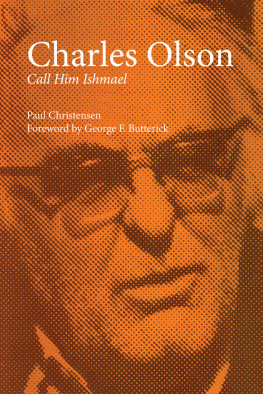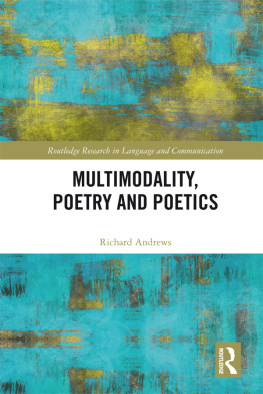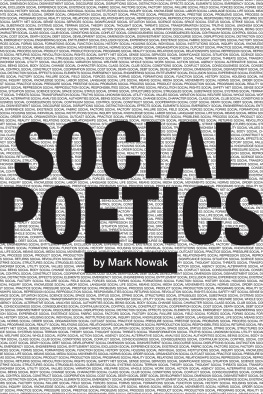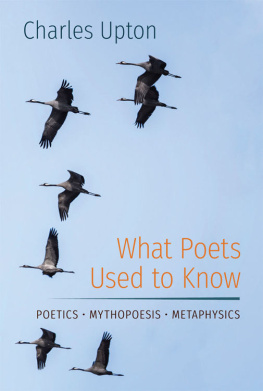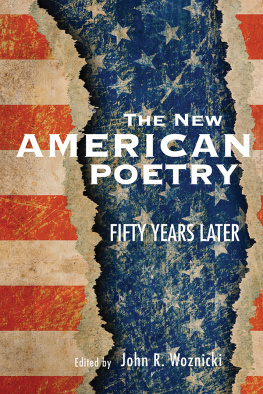Edited by Donald Allen and Benjamin Friedlander
With an Introduction by Robert Creeley




by Robert Creeley


The collection you hold in your hands contains the contents of four earlier books, Call Me Ishmael (1947), Human Universe and Other Essays (1965), Additional Prose (1974), and The Post Office (1975). Supplementing these are nine further studies: "Dostoevsky and The Possessed" (1940), "GrandPa, GoodBye" (1948), "Introduction to The Sutter-Marshall Lease" (1948), "D. H. Lawrence and the High Temptation of the Mind" (1950), "Footnote to HU (lost in the shuffle)" (1952), "Cy Twombly" (1952), "Paterson, Book V" (1959), "Place; & Names" (1962), and "'you can't use words... "' (1965). From Olson's voluminous archive of unpublished writings-enough to fill several volumes equal in length to this one-only a handful of pieces was chosen, and only pieces Olson himself prepared for publication. These are "Mr. Meyer" and "The Post Office" (from The Post Office), "GrandPa, GoodBye," "D. H. Lawrence and the High Temptation of the Mind," and "Cy Twombly." From Human Universe one piece was dropped, "Apollonius of Tyana," a long performance text more profitably read beside Olson's other works for stage. A smattering of uncollected publications from before 1945 was also excluded.
Except for adding Olson's dedication to LeRoi Jones in Proprioception, we have followed the texts established by Olson himself and by the various editors (especially George Butterick) who subsequently oversaw printing. (A handful of inadvertent errors was also corrected, silently.)
The notes identify quotations and offer clues to themes and procedures. Where Olson points, we shine a light; where light no longer penetrates, we let the opacity of the gesture stand. Our goal throughout has been to lead the reader more deeply into Olson's writings, into a work that Amiri Baraka calls "the proprioceptive probe"-a practice of language and act in which meaning is prized as "the continuity of Human material life, as actual history, actual matter in motion." To this end, the essays are arranged in sections that emphasize the movement of Olson's writings across a range of possibilities, human, material, historical.
A few of the notes are adapted from earlier annotations by George Butterick. These are identified parenthetically with GB, followed by a reference to the text and page number where the annotation originally appeared.
Our thanks are owed to many people, especially Amiri Baraka, Michael Basinski, Charles Bernstein, Carla Billitteri, Don Byrd, Cass Clarke, Marcus Coelen, Horace Coleman, Robert Creeley, Alan Gilbert, Loss Glazier, Albert Glover, Robert Gluck, Oliver Heyer, Andrew Hoyem, Yunte Huang, Gerrit Lansing, Nick Lawrence, Jill Robbins, Stephen Rodefer, and Fred Wah. Thanks are also owed the Thomas J. Dodd Research Center, University of Connecticut Libraries, Storrs; the Mandeville Department of Special Collections, University of California, San Diego; the George Arents Research Library for Special Collections, Syracuse University; and the Poetry / Rare Book Collection, University Libraries, State University of New York at Buffalo. In particular, we acknowledge the assistance of Richard C. Fyffe (Storrs), Bradley D. Westbrook (San Diego), Kathleen Manwaring (Syracuse), and Robert J. Bertholf (Buffalo)



I have no apology to make for the friendship with Charles Olson that, veritably, changed my life. I was twenty-four as I remember, looking for material wherewith to produce with college friend Jacob Leed yet another "little magazine" of the period to be called the Lititz Review. We never managed to print it, but many of the associations and works thus solicited went into Cid Corman's Origin, the great collective finally for us all. It was Cid's friend Vincent Ferrini who put me in touch with Charles Olson. It wasn't until some other friend asked if he were the same Olson who had written the book on Melville, Call Me Ishmael, that I had any idea he was not-as I was-another fledgling writer, for the most part unpublished and unknown. When I found the book and read it, I was astounded-and to some degree depressed. How could I possibly find company with someone so singularly, generously brilliant, so evidently accomplished? I couldn't be simply his sidekick or straight man. Nor his disciple ever. We had to be equals, which is really what Olson here says to all who read him-and what we share as a sense of person from a place, New England. Like the Pequod's crew, we are fact of a democracy which does not think itself as such but so functions. We believe in knowing, gnosis, we take our various worlds as a primary. We read the literal books of our lives.
Given such a life as his was, what's here collected, as Benjamin Friedlander writes on a postcard while working on Olson's papers at the library where they are kept, is only the tip of the iceberg.
Two days rooting through CO's carbon papers makes me feel at once ghoulish (as if it were the tissue of his skin I were peeling back to see in-"God's flesh," the "eternal," as he in one spot accuses all of us-including himself-of wanting to chew) at the same time more excited than ever, as if the unread Olson were the necessary 3/4 submerged berg making possible the 1/4 ice floe, I a diver feeling along the murky depths the crevice that tore the hull of many a sea-worthy ship.
He continues, "Well stupid Romance of the reader (me) ... " And yet it is here that any of us has to begin, at this insistent edge of outside and inside, this place which Olson's most initiating source, Herman Melville, puts in a way uncannily like Friedlander's:



